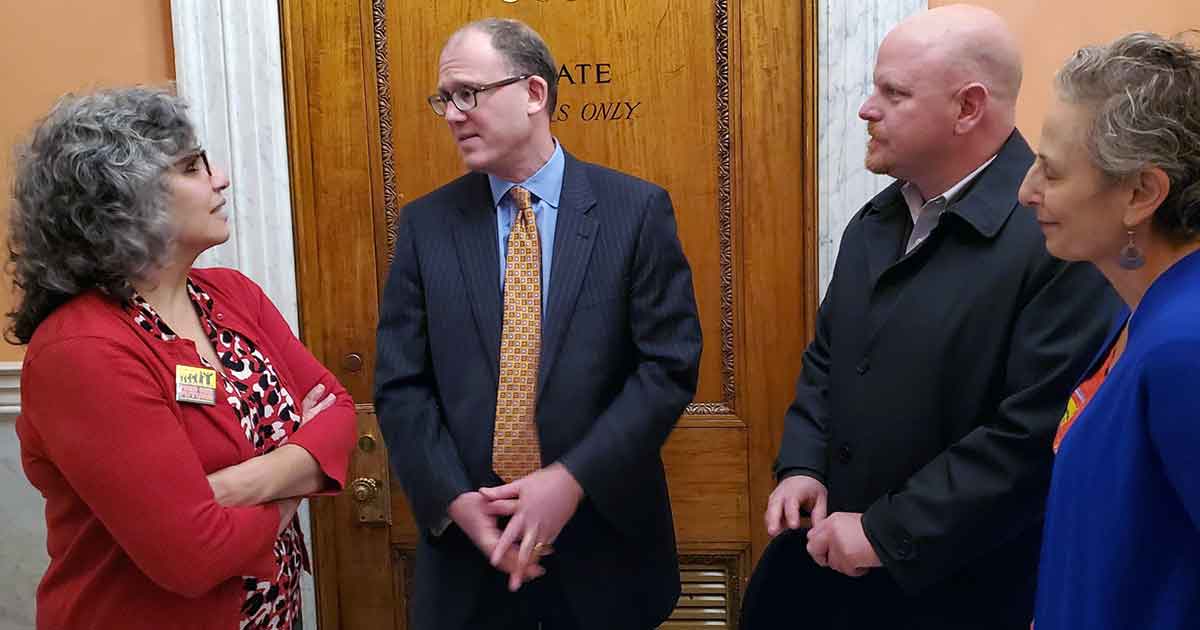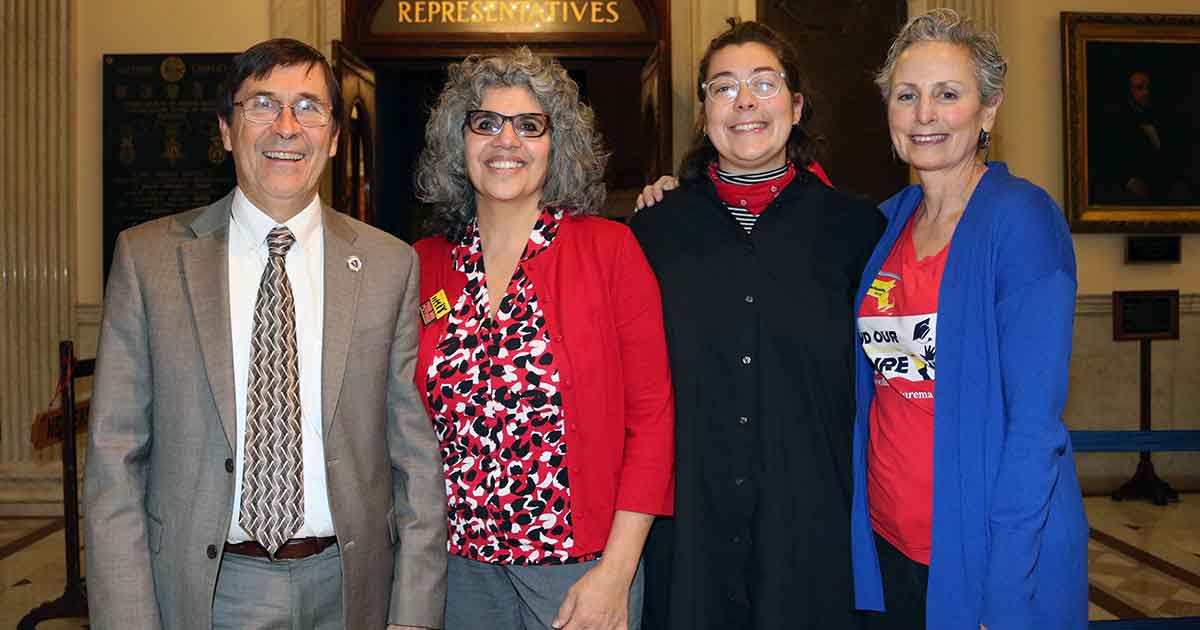Related Coverage
- House passes historic education funding bill
October 23, 2019 - Senate OK of education funding bill a ‘giant step' forward
October 3, 2019 - A giant step forward on ed funding, but your help is still needed
September 25, 2019
MTA applauds passage of Student Opportunity Act

This story was updated on Nov. 25.
On Nov. 20, the House and Senate approved the Student Opportunity Act, a historic bill backed by the MTA and other members of the Fund Our Future coalition that will increase state spending on public education by $1.5 billion over inflation as of 2027. It was approved unanimously to big applause.
The bill then moved to Governor Charlie Baker, who announced on Nov. 25 that he would sign it the next day. The following is the statement the MTA released when the conference committee’s version of the Student Opportunity Act was released on Nov. 19. MTA members and other unionized educators and parents who have advocated forcefully for a major school funding bill are celebrating today’s release of a compromise bill that would increase state funding for public schools by more than $1.5 billion over inflation when fully phased in. The Student Opportunity Act — backed by the MTA and other members of the Fund Our Future coalition — moved a giant step closer to reality today when members of a joint House and Senate conference committee released their consensus version of S. 2412. It is expected to be approved by both the House and Senate tomorrow, when the last scheduled formal session of the year will be held, and from there will go to Governor Charlie Baker. The measure is widely expected to be enacted, whether or not the governor supports it. “This historic bill represents a milestone for our students, for our communities and for racial and economic justice,” said MTA President Merrie Najimy. “It will have a dramatic impact on the education of more than 900,000 students, especially benefiting low-income students and students of color who have been left behind by the state’s outdated school funding formula.” The funding provisions in the new version mirror proposals approved unanimously by both the House and Senate in October. The final bill fully implements all of the recommendations of the Foundation Budget Review Commission, with most of the new funding targeted to low-income districts. The new funding will be phased in over seven years. “By passing the Student Opportunity Act, the Legislature is living up to its constitutional obligation to make sure that the quality of a child’s school is not determined by race or class,” said Najimy. “All students have the right to have an excellent education — period.” Najimy said that the final bill reflects the insistence by MTA members, parents and the wider community that educators and other local stakeholders have the primary role in crafting how the money is spent for the benefit of our students. “While we believe that the bill still includes too much in the way of discredited top-down intrusions from the Department of Elementary and Secondary Education,” Najimy said, “this new bill limits the commissioner of education’s role in shaping district plans compared to the version of the Student Opportunity Act released by the Joint Committee on Education. We and our 115,000 members will continue the work of making sure that educator and community voices are central to building the public schools our students deserve.” Najimy said that the bill represents a tremendous victory for the unionized educators and the parents who have campaigned for more than a year for a school funding bill of this magnitude. The supporters organized marches, rallies, email message campaigns, phone banks, community forums, State House actions and other advocacy efforts to draw attention to the needs of underserved school districts. In a separate but related action, a coalition called the Council for Fair School Finance has filed a lawsuit, Mussotte v. Peyser, on behalf of students in seven school districts. The suit contends that the current funding formula is both inadequate and discriminatory in that it has a disparate impact on students of color. The status of the lawsuit will be determined once the bill is finally enacted.Related Coverage
October 23, 2019
October 3, 2019
September 25, 2019